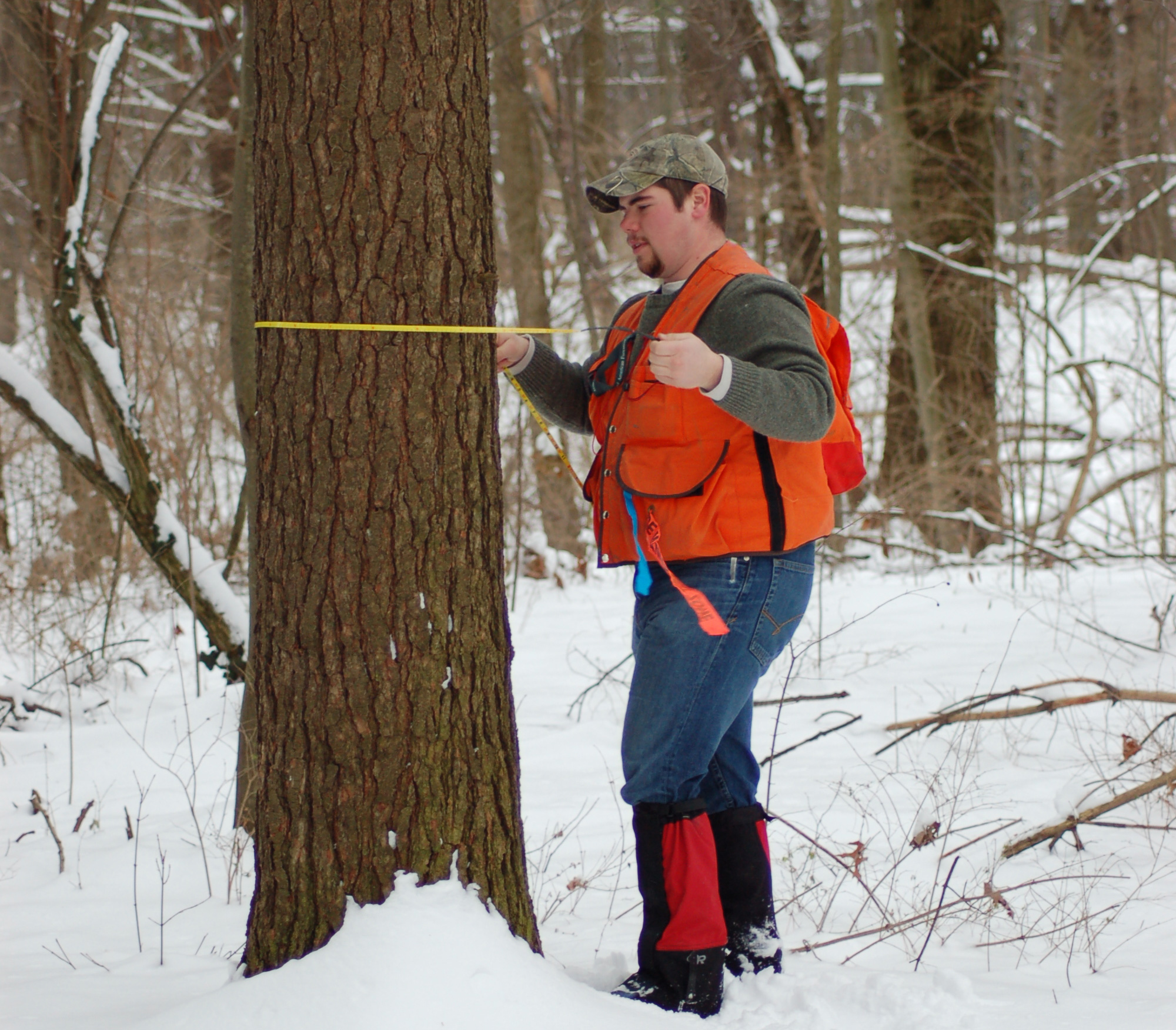Hunter Stauffer is learning the ins and outs of the timber industry in St. Marys, PA.

Hunter Stauffer, Procurement Forester
Degrees Earned
A.S. Forest Technology, 2010
B.S. Forest Science, 2012 (now Forest Ecosystem Management)
Doing the Job from Start to Finish
As a procurement forester, a large part of his job is cruising timber, but he also enjoys evaluating private landowners' timber for management, courthouse title searches and working on road construction for logging operations. "I like just about everything about my job," he tells us.
When he met Penn State instructor Mike Powell at Conservation Leadership School, Stauffer decided to attend the Mont Alto campus for his associate degree. He enjoyed studying in Mont Alto, which allowed him to be outside while learning basic forestry skills. "It was hands-on, outside every day unless there was lightning," he remembers. As graduation neared, he realized that he needed a bachelor's degree to find the career he wanted, and attended the University Park campus for his remaining two years.
Because he was active in student organizations and had worked summer and part-time intern jobs whenever he could, Stauffer was able to land a job at a sawmill after graduation. It was hard work, but the experience he gained proved to be invaluable. Stauffer began looking for a forestry position, and after eight interviews, he received six job offers. After some consideration, he decided to take a job with St. Marys. When asked where he might go from here, Stauffer says, "Someday it would be nice to be a veneer buyer or even work in upper management. I've got the drive and the mindset to advance as far as I can."
Q: What skills did you learn at Penn State that have been most useful in your career?
A: The one course that has been the most helpful in work that I do just about every day is Timber Sale Administration. It teaches you all of the starting points coming out of school that you use being a forester--legality, road bonds, how to design roads, courthouse work, and property line identification. The Silviculture course and the basic forestry courses that help you learn how to measure, identify and correctly manage trees, and how to manage water are also most useful.

Q: Can you give any advice to someone who wants to do what you do?
A: A bachelor's degree is definitely necessary for anyone who's looking to do anything in forestry. It needs to be from an SAF-accredited program. Also, there are many students who don't get enough experience during college. I recommend you send in your resume to a sawmill with an opening--many companies are looking for entry-level workers. Yes, they pay you a little less, but the experience you gain from doing it is priceless.
Q: How do you see forestry changing in the future?
A: Forestry is conservation. We're looking at the conservation of timber for generations down the road. And in my opinion, that's what forestry is for. It isn't for us to go out and make it look like it did in the early 1900's where you clear-cut every tree. We're here to manage the resource the way it needs to be managed, from standing trees to soils and streams. Forestry will play a key role in the future--for example, there are now green buildings that are trying to get away from using steel and concrete and be more environmentally friendly using wood products. I think there will be many different jobs for someone with a forestry degree.
Q: What did you do as a forestry student?
Pennsylvania Forestry Association, Student Representative
President, Penn State Chapter, Society of American Foresters
Teaching Assistant, Forestry 228: Chainsaw Safety, Maintenance, and Operation in Forest Management
Society of American Foresters Quiz Bowl
Wildlife Society (Penn State Student Chapter)

